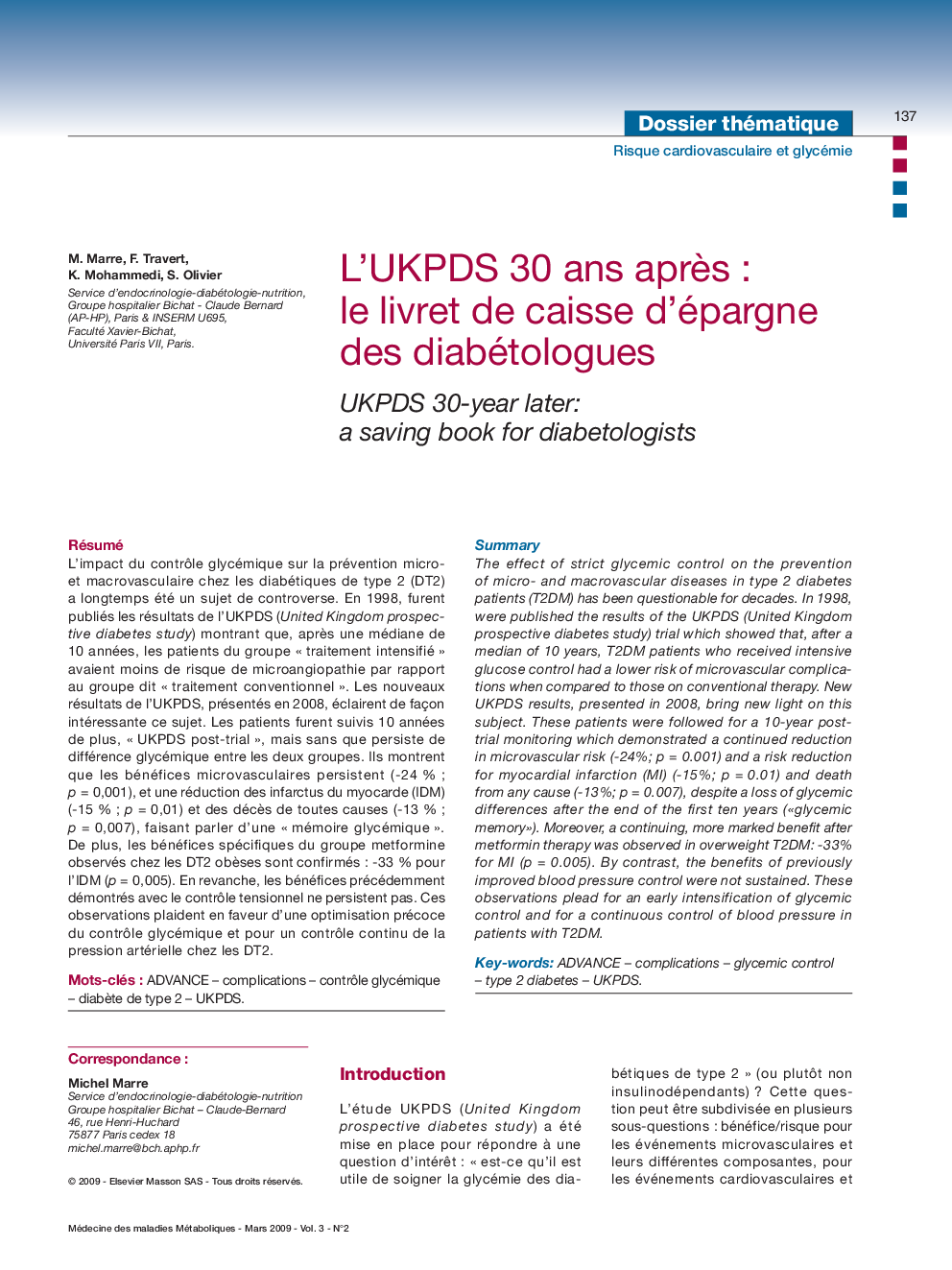| Article ID | Journal | Published Year | Pages | File Type |
|---|---|---|---|---|
| 3275326 | Médecine des Maladies Métaboliques | 2009 | 4 Pages |
Abstract
The effect of strict glycemic control on the prevention of micro- and macrovascular diseases in type 2 diabetes patients (T2DM) has been questionable for decades. In 1998, were published the results of the UKPDS (United Kingdom prospective diabetes study) trial which showed that, after a median of 10 years, T2DM patients who received intensive glucose control had a lower risk of microvascular complications when compared to those on conventional therapy. New UKPDS results, presented in 2008, bring new light on this subject. These patients were followed for a 10-year post-trial monitoring which demonstrated a continued reduction in microvascular risk (-24%; p = 0.001) and a risk reduction for myocardial infarction (MI) (-15%; p = 0.01) and death from any cause (-13%; p = 0.007), despite a loss of glycemic differences after the end of the first ten years («glycemic memory»). Moreover, a continuing, more marked benefit after metformin therapy was observed in overweight T2DM: -33% for MI (p = 0.005). By contrast, the benefits of previously improved blood pressure control were not sustained. These observations plead for an early intensification of glycemic control and for a continuous control of blood pressure in patients with T2DM.
Keywords
Related Topics
Health Sciences
Medicine and Dentistry
Endocrinology, Diabetes and Metabolism
Authors
M. Marre, F. Travert, K. Mohammedi, S. Olivier,
